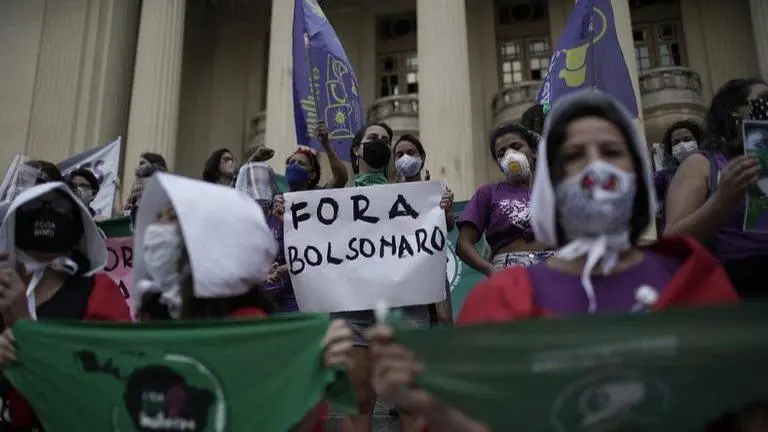Updated 8 January 2021 at 08:03 IST
Brazilian women march to Argentina in a bid to overturn abortion ban
Following Argentina’s landmark decision, several Brazilian women are heading to Buenos Aires, seeking something forbidden in Brazil: an abortion.
- World News
- 3 min read

Following Argentina’s landmark decision, several Brazilian women are heading to Buenos Aires, seeking something forbidden in Brazil: an abortion. On December 30, Argentina had legalised abortion in the country, which underscored not only how Argentina’s progressive social policy diverges from Brazil’s conservative one, but also the likelihood that more Brazilian women will seek abortions in the neighbouring nation. In a bid to dodge risks and legal obstacles in Latin America’s most populous country, Brazilian women have begun to sought abortions elsewhere in the region.
While speaking to AP, a 21-year-old Brazilian, Sara, said, “Having a child that I don’t want, and have no conditions to raise, and being obliged, would be torture”. Another woman, who lives in the interior Brazilian city of Belo Horizonte said, “What has helped me since I discovered I was pregnant is that I have a chance. I still have an alternative. That leaves me feeling more secure”.
Both women were bound for the Argentine capital and they didn’t even need passports to enter the county. With the changes in legalisation in Latin America, women no longer need to go to the United States or need a visa to get an elective abortion. Sara said that she couldn’t risk the possibility of buying counterfeit abortion pills or undergoing a dangerous backdoor procedure in Brazil. She also feared injury, death or a failed abortion resulting in complications. Getting caught could even mean jail.
However, an Argentine health ministry protocol provided legal leeway for Sara’s abortion as long as she signed a statement citing the “health risk” the pregnancy posed. The policy was based on the WHO’s definition of health - “A state of complete physical, mental and social well-being and not merely the absence of disease or infirmity”. The new law allows abortions up to the 14th week of pregnancy.
Advertisement
Dr. Viviana Mazur, who leads the sexual health group of the Argentine Federation of General Medicine, said, “The law will give more autonomy and dignity to women. So they don’t have to say ‘please,’ ask permission, nor forgiveness”.
Bolsonaro says ‘abortion will never be approved’
Brazilian law, however, has remained virtually unchanged since 1940, permitting abortions only in cases of rape and danger to the woman’s life. Even though Argentina legalised abortion, there hasn’t been any echo in Brazil’s Congress, where about 15 per cent of lawmakers are women. Back in 2012, a Supreme Court ruling allowed abortions when the fetus has anencephaly, but since lawmakers have introduced at least 30 bills seeking to tighten laws.
Advertisement
Moreover, Brazil’s President Jair Bolsonaro has said that if Congress legalized abortion, he would veto. After Argentina’s bill was passed, Bolsonaro said on social media that it would leave children “subject to being reaped in their mother’s wombs with the consent of the State”. He named evangelical pastor Damares Alves, who has said she opposes abortion even in cases of rape, to be his minister of women, families and human rights.
(Image: AP)
Published By : Bhavya Sukheja
Published On: 8 January 2021 at 08:03 IST
